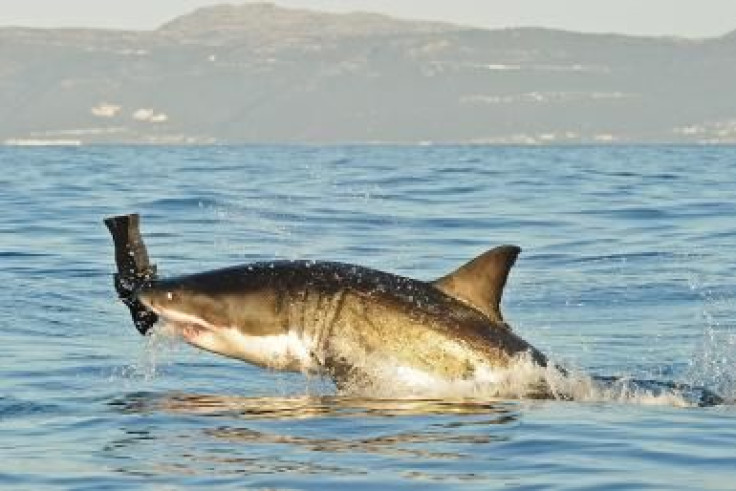16-Foot-Long Great White Shark Pictured During Extremely Rare Sighting Off Majorca

Holidaying spot Majorca witnessed a massive great white shark — the first in 30 years on Thursday. Photos of the predator was taken by scientists and later shared on the Facebook page of the Alnitak expedition 2018.
“In recent years there were possible unconfirmed sightings and various rumors, but this is the first scientific observation of the presence of the white shark in Spanish waters for at least 30 years," Alnitak, a research and conservation project, said, adding that two 16-year-old students were among those who had witnessed the massive shark.
The scientific expedition Alnitak 2018 was commanded by biologist Ricardo Sagarminaga Van Buiten and also biologist Fernando López-Mirones. The director of ORCA- films was in charge of the footage, which was taken eight miles from Cabrera Island and for 70 minutes during which the presence of the shark was seen close to the Cabrera National Park in the Balearic Islands.
“On this occasion, this historic sighting has been photographed, filmed and contemplated by a crew of 10 people from five countries,” the post added.
Great white shark, which are one of 46 species of shark reported in the Mediterranean, are rarely seen in the area. The more common Blue shark have often been spotted leading to several beach closures.
Meanwhile, shark attacks are also extremely rare in Europe with only 200 attacks in the Mediterranean since 1900.
Experts say clashes between these sharks and humans are now virtually "unavoidable," according to the Daily Mail.
"Even the slightest hint of a shark attack in the Mediterranean surprises — even horrifies — the many millions of people who visit this region every year... The existence of approximately 46 different species of sharks in the Mediterranean — 16 of them measuring three or more meters in length, and 15 being potentially dangerous species — makes the occasional encounter between humans and these animals in the most frequented and most travelled sea unavoidable," Ian K Fergusson, of Sharkinfo.ch, said.
© Copyright IBTimes 2024. All rights reserved.











